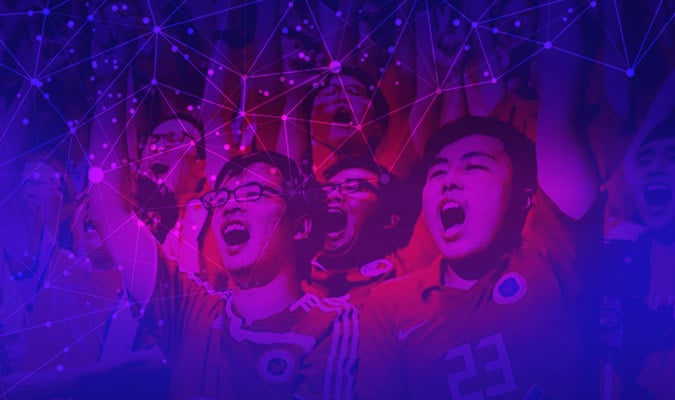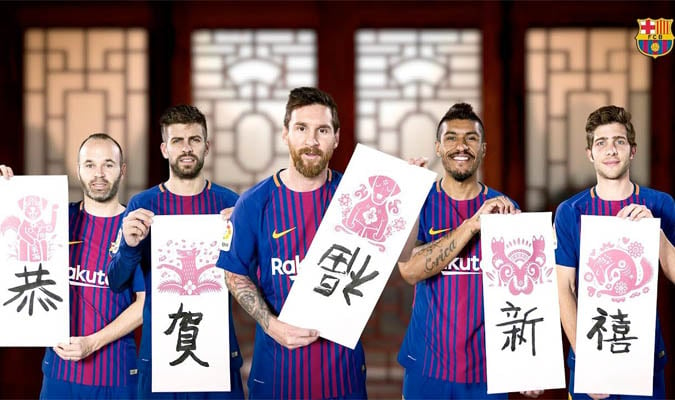Search the latest and greatest job opportunities in sport

Football has always been the ‘king of sport’, the opium of the people, the sports activity that brings together the great masses. And when you give more resources to the one that already has the most, its power is infinite. Football still has no rival in terms of audience and participation. Technology, internet, videogames, social networks and digital television have brought football clubs and their fans together in such a way that a local club member who has been paying his membership fee for years and years deserves the same attention as someone who supports the club’s colors thousands of kilometers away. It is the power of globalization and the daily work of the marketing departments of football clubs. Treat everyone as they deserve, offer more and more varied experiences to the fans who consume football at all hours, wherever they are.
And working on all this is Richard Denton, marketing professor at the Johan Cruyff Institute and current director of sponsorship at Vitesse FC. Endorsed by his 20 years of experience in sport marketing at European competitions, World Cups and different federations, the Dutch First Division team Vitesse FC has put its marketing and sponsorship department in his hands this season.
Richard recently visited the Johan Cruyff Institute as a guest speaker on the Master in Football Business in collaboration with FC Barcelona. We talked with him about today’s landscape and the challenges and opportunities that football clubs face to maintain their privileged position.
How did you become involved with football professionally?
Professionally, I’ve been very lucky to work in sport marketing, which introduced me to the European Championships and Wold Cup tournaments. I was also working on the Champions League for a number of years with Canon, and more recently I’ve been working with a number of federations, such as the English Football Association, and now in my current position with the Vitesse FC.
What are your challenges as Manager of Sponsorship ad Partner Sales at Vitesse?
My biggest challenge is to bring new partners and sponsors into the club and make sure that we increase our revenues in the coming years, so that we can reinvest into the different activities that we want to develop for our fans and our customers and our business club members. That’s going to be my priority for the next two or three years to increase the revenues.
What are the main trends in sport marketing that football clubs should apply?
The biggest trend in the last years is globalization is the ability, particularly the professional clubs in the big markets, such as Spain, England, Germany, of course, and also recently France, with Paris Saint Germain, to connect with a global audience, hundreds of millions, which has really changed the whole dynamic of the business; in combination, of course, with the social digital media platforms, which are not only owned by the football clubs, but organizations (such as Amazon for example) taking interest in content to generate consumers and subscribers to their own products and services. So, I think that makes a really dynamic and sometimes disruptive and volatile environment, which is challenging for many organizations to deal with.

How are the growing values and reach of audiences in football together with technological developments changing the relationship between sponsors and fans?
There is definitely improvement. The technology has given both the fans a stronger voice and the sponsors and football organizations the opportunity to engage with the fans on a more personal level. I think we had a mass customization and it’s now becoming more personalization, which means the engagement can become more one to one. It’s an advantage for sponsors also, and hopefully that delivers greater enjoyment and greater satisfaction for the fans who are loyal to these football clubs.
Marketers need to constantly adapt to new situations. What will the future bring?
Clubs, thankfully, are becoming more marketing oriented, so I think they are becoming much more involved in the communities, they are listening more carefully to the fans—what they like, what they don’t like—so they try to adapt and provide them with a tailor-made proposition which the fans can then use in order to enjoy their relationship with the football club. I think more expertise is coming in to the football area, particularly from people with data management backgrounds, for big data, particularly with technological capabilities developing the right technology platform in the football clubs and that, in combination with a more international market and a more international product, is making the whole football arena a much more exciting place to be for the stakeholders in the business.
Are the new generations of players more involved in marketing activities?
The football players are definitely more involved than in the past, but I think that a great addition, not only for the clubs but also for the players, is through the social media, of course, which has allowed the fans to connect and become closer to the players and, in combination with the clubs, they are providing this access. Perhaps also very important is the development of games, like FIFA18, for example, and e-sports. Many of the younger generation, the millennial generation, is now learning about football playing football online, against their friends, against the football community, and the data and the statistics, and the historical information associated with these players, is much more available. So, not just the players reaching out to the fans, but also the fans are in a position to increase their knowledge and the understanding about the players through the data that is available in the market place.
Is there any country that the others can learn from in terms of fan engagement?
I think it really varies from country to country. If you take a look at the bigger leagues, of course, in Spain the technology in the clubs like Barcelona and Real Madrid is definitely something that we can look at in terms of developing loyalty programs, how to engage fans who never come to the stadium, what can we offer them in terms of football experiences. In the UK, there’s been a lot of good work done particularly with communities and helping underprivileged fans and children to benefit, not just from playing football but also in a health context in terms of reducing obesity and things like that. Certainly, in the Dutch market, we don’t have the media income which you have in the bigger leagues, so you have to become more creative, working with foundations and working with schools in different parts of the society. So, I think if you look a little bit beyond the match day experience, then there are things happening in every market which we can learn from each other in order to make it a more holistic football experience for the fan.

Football clubs need to reach a global audience to keep growing their fan engagement, but at the same time it’s important not to forget the local community. Where is the balance to make everybody happy?
It’s a great question. The local fan is, I think, still extremely important; the season ticket holder is very valuable, having full stadiums creating the right atmosphere, that’s something which translates into the media and, of course, attracts other partners, other people who then say, ‘yes, we would like to be involved with the football club’. I think there needs to be enough attention on the local fans, on the local community, but of course realizing that maybe 80 or 90% of the fan base these days might be abroad or might not be coming to the stadium on a regular basis. So, reaching out to them with football clinics or with tours, making sure that merchandise is available, making sure that content, goal scoring, etc., is provided through the mobile devices, so they can also enjoy the football experience in their own home, or in the café, or the bar, or wherever they are watching the match. I think in many cases, that’s happening, but to find the right balance between the two, that’s always going to be a challenge.
What are the main differences between promoting a day sport event and a seasonal sport event?
A single-day sport event is, perhaps, a little bit easier to sell, in the sense that you are not asking a fan to commit maybe for 20 times a year. When you ask somebody to become a season ticket holder, you are asking for a quite big commitment to the club, that you spend 3 or 4 hours of your weekend or your evening to go to the club and be part of the activities, and in the current lifestyle people have a lot of choices to make, so we need to respect the fact that they have other commitments and obligations. So, maybe the one-off events are slightly easier to market to a certain audience, and the ticket holders is an audience that we need to give them a good reason to participate on a regular basis.
This article was written by our partner Johan Cruyff Institute .
Give your career in sport a boost with the latest live vacancies in Education , or create an account today and stay up to date with all the latest industry knowledge, events and jobs in sport.
Search the latest and greatest job opportunities in sport
In the world of professional sports, sponsorship represents a significant source of revenue and plays a vital role for t...
Read moreThe sports industry is a vibrant and multifaceted industry, made up of a diverse range of sectors that shape its global ...
Read morePablo Romero, director of protocol at Sevilla FC and lecturer in the UCAM Master's Degree in Sports Management, shares t...
Read more